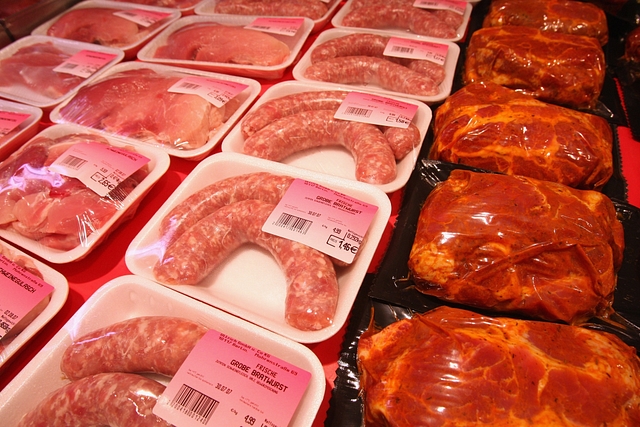
Soon In Mumbai: You Can ‘Cell’ Meat By Culling It, Not Cutting It, Thus Reducing Slaughter. Here’s How
Mumbai will soon be host to the world’s first research centre dedicated to lab-grown meat, Times of India has reported. The facility, based at the Institute of Chemical Technology and backed by US-based Good Food Institute, will develop ‘clean meats’ that do not involve animal cruelty or slaughter. ‘Clean Meat’ will be developed by extracting a small number of animal cells painlessly and then growing the meat in a manufacturing facility.
The Good Food Institute is an international non-profit that promotes plant and cell-based meat through research. This institute, along with the Maharashtra state government-backed ICT, plans to establish a Centre of Excellence in Cellular Agriculture. The first campus will be in Mumbai, with a second one slated to open in the ICT’s Jalna campus by 2021.
The ToI report quoted Dr Rekha Singhal, dean of research, consultancy and research mobilization at the Institute of Chemical Technology (ICT) as saying that “We are proud to announce an MoU with industry leaders to set up the world’s first dedicated centre on cellular agriculture,”
Institute of Chemical Technology (ICT) will be the world’s first dedicated centre on cellular agriculture. This centre aims to pioneer innovation, allowing Indian businesses a chance to create products using our research. When fully operational, it will include state-of-the-art facilities for cell culturing and endow research fellowships in the various technology areas of cellular agriculture, including cell culture media, cell line isolation, scaffolding, and bioreactor design.
A number of research articles in the recent past have pinpointed the consumption of meat as one of the gravest environmental threats to the planet, especially at a time, when increasing prosperity among a rapidly growing population of humans leads to greater demand for meat. There are several perspectives: the profligate use of water, food and energy to raise livestock; the impact of such large-scale animal husbandry on global warming, on antibiotic resistance, and the ethical issues related to eating animals, harvesting their skins, raising them in cruel factory farms and slaughtering them inhumanely.
A sustainable choice that has attracted considerable research and commercial interest is to generate meat and other animal products in the lab, either from animal cells grown painlessly in labs, or generated from plant proteins. There have been earlier examples of this, for instance, the meat substitutes in Chinese vegetarian restaurants that approximate chicken or duck, and are made of soy or gluten.
Significant venture money has flown towards companies at the forefront of the meat revolution.
Impossible Foods, which makes plant-based burgers, has raised $200 million (Rs 1,300 crore) from investors including Bill Gates, Vinod Khosla, and Eric Schmidt and Sergei Brin of Google. Others including New Wave Foods (plant-based shrimp), Finless Foods (cultured seafood), Clara Foods and Geltor (fermenting yeast cells to create egg whites and collagen).
Memphis Meats, one of the leaders in the industry, was founded by Uma Valeti, a cardiologist of Indian origin. He says his method of inducing animal stem cells to become muscle tissue (aka meat) in a large bioreactor vat upends the current production process, because it eliminates slaughter, the risk of food poisoning from e. coli contamination via the animal’s intestines, and the need for using antibiotics at all; not to mention, there’s no belching of methane and other greenhouse gases into the into the atmosphere.
Also Read - Generating Meat In Labs: The Technology, Opportunities And The Consequences